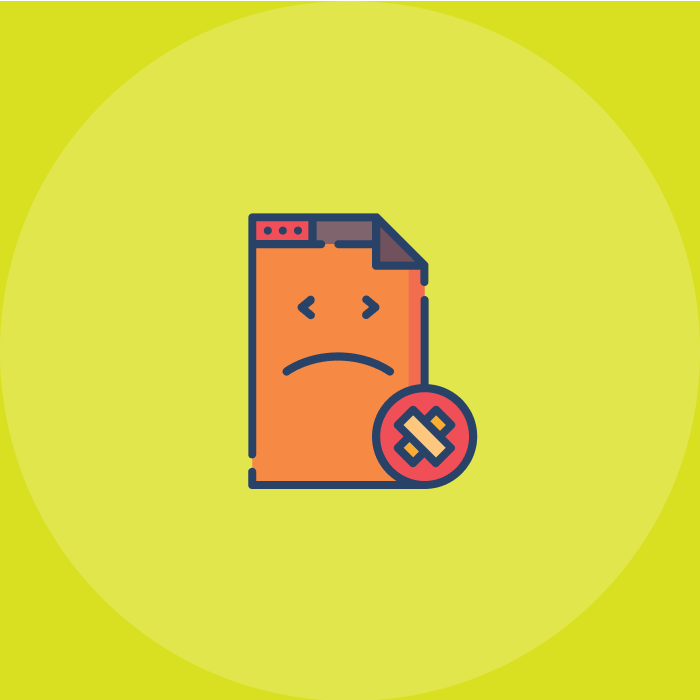Is Your personal brand can land you the job of your dreams—or get in your way? If you want to make a good personal brand, avoid these deadly mistakes.
I’ve been working with personal brands for over 15 years.
In that time, I’ve seen people make the same mistakes over and over again. Not because they’re stupid or crazy or anything like that.
They just don’t know any better.
So they waste hours doing things that don’t work — things that sabotage their success and drain vital energy from the tasks that actually matter.
I don’t want that for you. So, in this post, I’m going to share with you the 7 mistakes I’ve seen repeatedly cripple personal brands.
Are you ready?
"7 Biggest Mistakes Personal Brands Make"
1. They Try to Cover Everything.
This might surprise you, but the last thing a speaking agency wants to hear is this:
"I can speak to any audience. I can cover any topic. Put me on the stage, and I can deliver."
That sounds good, though, right?
It sounds like that speaker is versatile like they have a lot of different areas of expertise — that they’re a jack of all trades.
Now, that might be true. But that’s not what the market needs. That's not what consumers are looking for.
They’re looking for defined expertise. They're looking for something they can latch onto. They're looking for you to solve a specific problem in their life.
They’re actually not looking for a jack of all trades. So, make sure you’re not trying to come across as one.
How can you avoid this mistake?
The solution is simple.
Pick a lane.
Pick what your current expertise is. Pick what you're most passionate about. Pick what you’re most knowledgeable about.
Whatever it is, pick the topic that best fits your skill set and focuses there.
You can always branch out down the road, but start with one topic — start with a focus — and go from there.
2. They pretend to be more than they are.
If you want your personal brand to succeed, it’s easy to think you need to position yourself as a larger-than-life figure who has everything figured out.
That’s why people throw around terms like “bestseller,” “award-winning,” or “highly sought after” as much as they can.
Now, there’s nothing wrong with using those terms if they are actually true.
The problem comes when you use those terms to exaggerate your real level of success. Because your audience will eventually catch on. And when they do, you risk losing their trust.
Imagine someone says they shared the stage with John Maxwell. But then you find out they actually spoke for a breakout session four days before John Maxwell did...it just happened to be at the same conference or on a portion of the same stage that he spoke on several days later.
If you’re a member of that person’s audience, you’re likely to lose some — if not all — trust for them.
So be who you are.
Attach validly and earned accomplishments to your resume, to your bio, to your website, but don't add things to make yourself sound better or more accomplished than you really are.
Most of the time, the audience can see right through that, if not immediately, at some point down the road. It's just not worth it.
Be who you are, own who you are, grow into being an accomplished expert. Don't try to automatically start at the top.
3. They go it alone.
A lot of people try to build their personal brand entirely by themselves.
It is a personal brand, right? So why is trying to build it by yourself such a bad idea?
Two main reasons:
- If you try to do everything on your own, it’s very possible you could burn out and lose interest in doing
- It’s nearly impossible to do every aspect of a brand-building project efficiently and effectively alone.
As the old saying goes, you have the ability to do anything you want, but you can't do everything, and you definitely can't do everything simultaneously.
Leverage your relationships, find other specialists in different areas to help you. And if you have the budget to hire those specialists, outstanding!
If you don't, here are some options.
- Talk to your friends. Odds are, they have a level of skill in an area that could benefit you. Or, if they don’t already have that skill, they may be interested in learning. Working with you could give them the opportunity to practice their budding skills in a real.
- If you’re a member of a church, talk to your church community. Let people know what you’re hoping to accomplish, why it’s important to you, and how it could help them develop/practice skills or offer their services as an act of goodwill.
- Work with a local college or university to set up an internship with your business.
Don’t fall into the trap of thinking, “If I can’t pay, no one is going to work with me.”
It’s not true.
The options are out there. You don’t have to do this alone. You just have to look for ways you can leverage your relationships and build your company while also helping others grow their experience.
A lot of people spend the majority of their time scrolling on social media.
Not contributing. Not commenting. Not posting. Just scrolling.
And if you’re trying to build a personal brand, that’s a problem. Here’s why.
Scrollers are watching other people take action. If you're scrolling, you're not creating. If you're scrolling, you're not posting. If you're scrolling, you're not writing and engaging and building up your audience.
Just to be clear, that doesn’t mean you have to post every time you get on social media. You should absolutely be reading, absorbing, and learning from others. But if you spend the majority of your time scrolling, you could fall into a deadly trap — especially if you’re trying to build a business.
You want to scroll far less than you create and interact with people.
Get into it. Create. Do. Don't watch.
5. They run their business on hope.
I'm not talking about spiritual hope here. I have that, and it’s very important to me.
But what I’m talking about are people who randomly create content and spend money on things they hope are going to make progress for their brand — without an actual plan.
Instead of relying on results and a defined outcome for each action they take, a lot of people I come across are randomly creating different things, spending time here and there, hoping their content goes viral.
I call this a Hope Marketing Mentality, and you should avoid it at all costs.
If all you're doing revolves around hope, then there's nothing concrete. There’s nothing solid to sustain the business.
As a mentor of mine once said, "The bank doesn't take hope."
My bank doesn't take hope. Your bank certainly isn't going to open an account based on hope. So you have to figure out a different way to think.
How?
Think through the entire process.
Don’t say "Ooh, maybe this sounds like a good idea. I think I'll go spend an hour creating this and hope it works!"
Instead, say, "I'm going to spend an hour doing this, and here is the outcome. Here's what I'm going to do with it when I'm done, and here's why I should actually spend time doing it."
Run through that entire sequence of thoughts.
Make sure you get to a conclusion and a defined outcome. Generally, your outcome should lead to one of two things:
So if you're looking for a north star by which to judge the value of your efforts, build your time around projects that generate leads or create revenue.
6. They make everything free.
Giving things away for free isn’t bad — as long as you know why you’re doing it.
If you want to have a free download (lead magnet) on your site to generate leads, great! But don’t fall into the trap of hoping that, after giving away all your content for free, someone will come along and say, “Hi! You’re so great. I want to pay you to be a consultant for my business!”
Now, that’s not impossible, but if you’re betting the success of your business on it, you’re falling into that Hope Marketing Mentality, which we want to avoid.
At some point, if you're going to turn your personal brand from a hobby into a business, you have to have something to sell. You'll need a product or a service that you can charge people money for.
Make sure you actually spend time thinking about how you’re going to make money with your personal brand. What can you sell? How are you going to pay for this thing long-term?
It’s easy to fall into the trap of believing that the only way to stand out is to give away all your content for free.
That's a dangerous — and potentially deadly — a mistake for your brand.
If you're looking for a ratio, think of it this way:
Give away content for free about 4 times as often as you offer a product to your audience. So, for every sales pitch, you should have given your audience 4 pieces of valuable free content, like blog posts, downloads, or videos.
The key is not to never sell to your audience, but to find the proper ratio that lets you establish authority and goodwill with non-purchasers while still being able to generate revenue and run your business`.
Always be thinking about the outcome of how you’re spending your time, how you can make money from it, and what's next for the consumers in your funnel.
7. They taste success. Then they coast.
This is a common trap personal brands can fall into.
They achieve a little success — whether it’s building a following, getting a book deal, being booked for speaking engagements, or generating some substantial revenue — then they stop moving forward.
As you probably already know, the world of personal brands and digital marketing is constantly changing. If you want long-term success, you have to keep your finger on the pulse. At no point should you say:
“Wow, I've made it. I got one speaking engagement for $5,000, and I don't have to do anything else the rest of this month!"
You have to continue moving forward. Don't become complacent. And don't get lost in a circular track where you do the same things the same way day after day, week after week.
If you find yourself starting to coast, here’s how to fix it.
Get on the phone with some of your clients, customers, or audience members.
Figure out a way to just have a conversation with somebody. Talk to them about how they found your brand, why it’s important to them, and what problems you haven’t helped them with yet.
Let them remind you why your brand is important. That'll ignite you and get you back into a creative and engaged mindset.
Avoiding the Wrong Things
Sometimes the foundational element of success isn’t doing the right things all the time but avoiding the wrong things wherever possible.
Good luck out there!
Subscribe to weekly updates
You’ll also receive some of our best posts today






